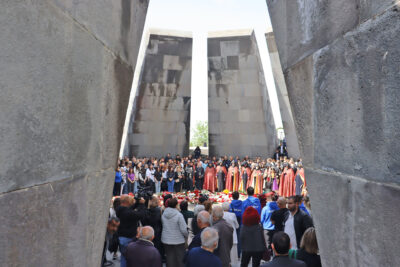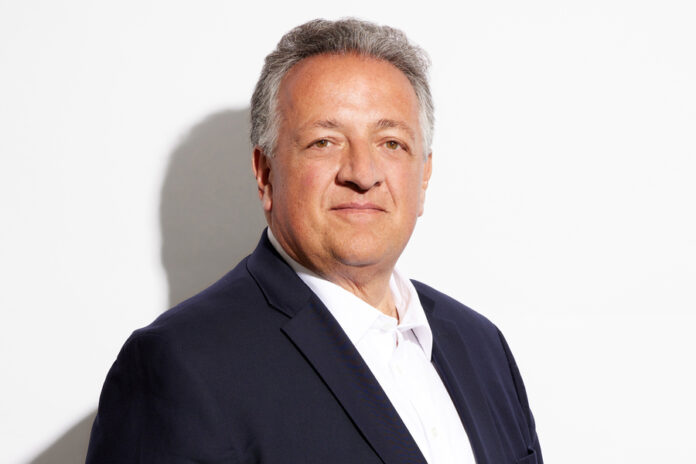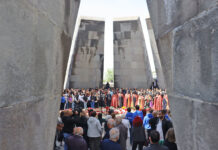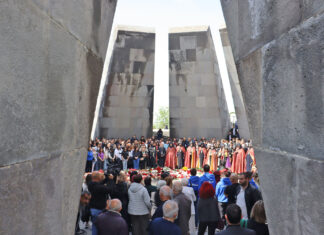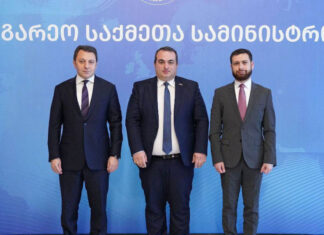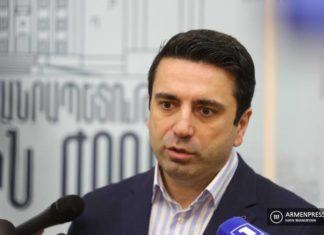“A human can inspire another human. And that process, the identifying of people who can take it upon themselves through their stories and the narrative that comes around that, creates a symphony of empathy, as opposed to individual acts,” said Aurora Co-Founder Noubar Afeyan during a podcast recorded in partnership with Devex, the independent news organization dedicated to global development.
The podcast, released on World Humanitarian Day, on August 19, was led by Raj Kumar, president and editor-in-chief of Devex, and featured Noubar Afeyan, co-founder and chair of the Board of Directors of the Aurora Humanitarian Initiative, founder and CEO of Flagship Pioneering, and co-founder and chairman of Moderna; Alice Greenwald, Aurora Board Member, founder and principal of Memory Matters and former president and CEO of the National September 11 Memorial and Museum; and Mirza Dinnayi, 2019 Prize Laureate and co-founder and director of Air Bridge Iraq.

Afeyan also talked about the inspiration behind Aurora and the changes he and his fellow co-founders wanted to introduce to the humanitarian sphere with its launch. “The three of us [Afeyan, Ruben Vardanyan and Vartan Gregorian] conceived of a way to honor the memory of the victims of the Genocide, and more importantly, the people who saved the lives of those whose descendants we are,” remarked Dr. Afeyan. “We’ve really doubled down the community. We’ve gotten the people together. We’re learning from them. We think this is one complementary way to attract a generation of folks. At a time with both man-made and natural disasters – the pandemic, climate change – humanitarianism is going to be, unfortunately, in ever-growing demand, and we think that this Initiative can help people really prepare for the moment where you have the opportunity to save others.”
Dinnayi recalled receiving news of being nominated for the 2019 Aurora Prize at a very challenging time in his life, and how that gave him strength to go on. “They told me that I have been selected as one of the finalists, one of three finalists. I didn’t expect even that I would get the Prize. I just was happy because I was working very hard with the victims [of ISIS]. It was a period of my life where I said, “Yeah, I am completely destroyed because of all the traumatized people that I am dealing with.” And you don’t need to hear ‘thank you’ from the people, but you just need a kind of recognition, moral recognition. So, it was so important for me to have that,” explained Dinnayi, who was awarded the Aurora Prize in 2019 for his outstanding efforts to help the most vulnerable members of the Yazidi community during numerous conflicts in Syria and Iraq.

Speaking of making a choice to be “an upstander, not just a bystander,” Greenwald brought up the story of this year’s Aurora Prize Laureate Dr. Denis Mukwege, a world-renowned gynecological surgeon and human rights activist from the Democratic Republic of the Congo (DRC). “He has worked to provide healing and recovery for women, not just medically, but in every facet of their lives, psychologically, emotionally, socially, economically. It’s about bringing people back to full, their full humanity after a trauma of unthinkable proportions,” said Ms. Greenwald. “I had the privilege of meeting Dr. Mukwege some years ago in Yerevan, Armenia. I asked him, somewhat naively, “Denis, how did you get into this line of work?” And he looked at me, stopped in his tracks, and he said, “Alice, everyone has a mother.” And that’s all he said. That’s the core of what Aurora is about. That is the core of what the humanitarian impulse is about. It’s recognizing what we share in common as human beings, not what divides us.”

